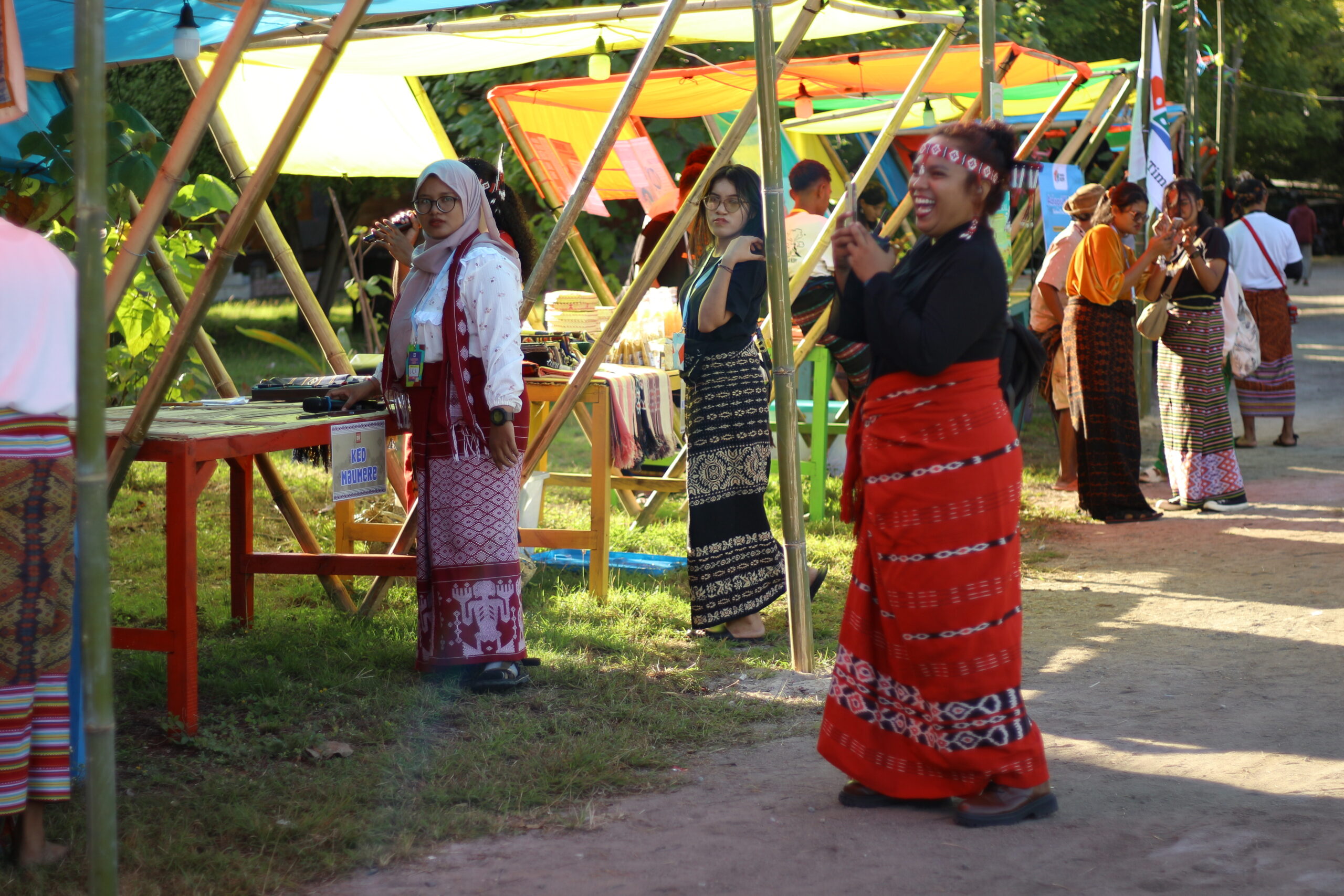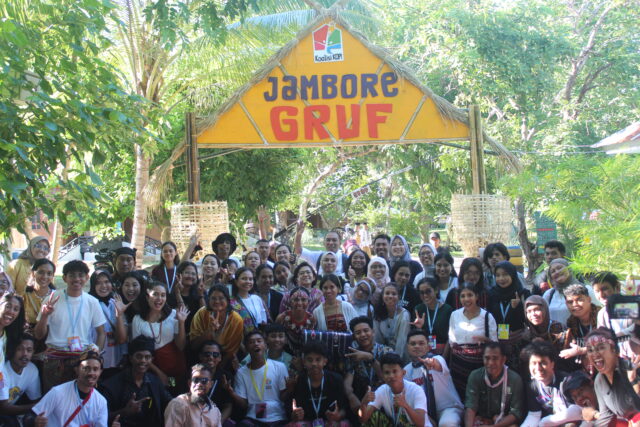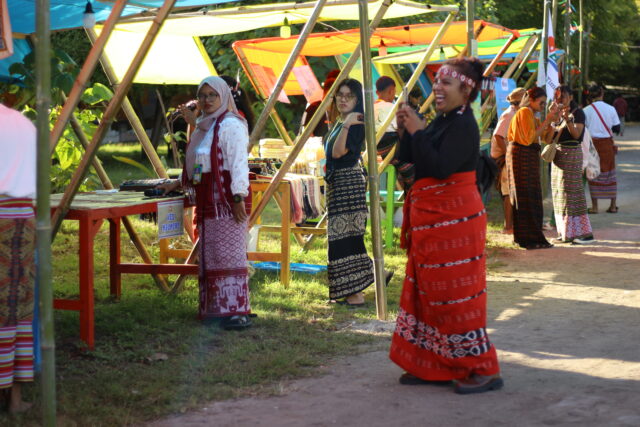
Climate Justice | June 20, 2025
Indonesian Youth Allocate Local Climate Finance Through NLGF
Alfa Gumilang

Image 1. The KEF team during the GRUF Jamboree in Alor Regency, East of Nusa Tenggara (Photographer: Alfa Gumilang)
The Flobamoratas Executive Committee (KEF), the biggest network of youth for climate action in the region of Nusa Tenggara Timur (NTT), and possibly Indonesia. They recently received funding through the Next Level Grant Facility (NLGF) mechanism from the Voices for Just Climate Action (VCA) program. NLGF focuses on supporting local-based climate action at the community level, as well as providing emergency funds for environmental defenders and addressing climate disasters. We spoke with Eda from KEF and Gerson from KED about their work funded by the NLGF.
KEF is a community network organization that emerged from the Youth Coalition for Climate Change (KOPI), a partner of the VCA program in Indonesia since 2021. Under KEF, there are Regional Executive Committees (KED) spread across 12 districts, acting as movement nodes and consist of dozens of communities.
Next Level Grant Facility
In Indonesia, VCA’s NLGF fund is administered by the Humanis Foundation and managed by The Samdhana Institute. KEF received approximately 9,453 Euros (approximately 120 million rupiah) from the fund, following a selection process that involved over 200 applicants.
With this funding, the KED in Alor has successfully constructed 52 coral reef planting media. Spider web constructions with cement and iron were placed in the waters of Maimol Beach, Kabola Village, Kalabahi – housing a total of 100 coral seedlings. The structures only require monitoring 3 to 4 times a month to ensure reef growth. “Transplanted coral with this method can grow well if maintenance is routinely conducted. The spider web constructions are put 3 to 7 meters deep to avoid damage caused by fishing,” Gerson, a member of KED Alor, mentions.
Coral transplantation helps restore natural coral reefs and promotes ecotourism. “Our future plan is to collaborate with schools to teach about reefs. We plan to create a business focused on coral reef adoption, including offering packages for coral reef planting aimed at the public and collaborating with homestays for promotion,” Gerson continued. Production-based activity supported by the NLGF is not just aiming for profit, but it also promotes coral reef rehabilitation. “The economic advantage of this would be supporting local tourism, while on the other hand, it is the initial step for nature conservation,” Eda adds.
In another region, the team of KED Maumere makes virgin coconut oil products. The business is running well as the products have found regular customers and several repeating orders. A similar business model, also producing virgin coconut oil, has been developed by KED in Nagekeo Regency. The products have been marketed and displayed at events hosted by the KOPI Coalition.
Bajawa is a well-known area for coffee production in Indonesia. The area has distinctive coffee characteristics, so it’s not surprising that KED Bajawa chose a coffee production-based operation. “An investor saw the potential in the development of these products. What’s noteworthy is that they utilized local media during the launch for advertising,” mentioned Eda from KEF. In Colol of East Manggarai regency, KED is also producing packed coffee, utilizing an online marketplace and selling the products in an art shop in Labuan Bajo.
In West Manggarai, KED created a dance and a short film conveying messages about environmental issues, and the KED in Lembata organized a discussion on the impact of climate change in Lembata.
Considering the nearing end of the VCA program implementation, KEF assembled three people to monitor and document the progress of tasks between September 2024 and February 2025, ensuring the program’s smooth operation. Meanwhile, the KOPI Coalition continues to assist the team.

Image 2. Eda in traditional clothing during the opening of GRUF Jamboree (Photographer: Alfa Gumilang)
Moving towards sustainability
According to Eda, funding from NLGF is important for KEF and KED. It was used as the initial capital to support organizational sustainability. Part of the gains from business production can be used to finance organizational activities such as climate campaigns. Therefore, the youth climate action movements organized by KEF and KED do not solely rely on donor funding.
“At least in the future, we will have our own capital to fund climate action, even though it is small. For example, if we need to organize a discussion session, we now have funding. Or, if we want to send members to a KEF event, there is a budget available. We do not rely only on funding from the VCA Indonesia program or other donors,” she says optimistically. Eda believes it’s important for young people to be open to any available support or funding, while remaining aware of their autonomy and values, so that this support does not compromise their climate justice principles.

